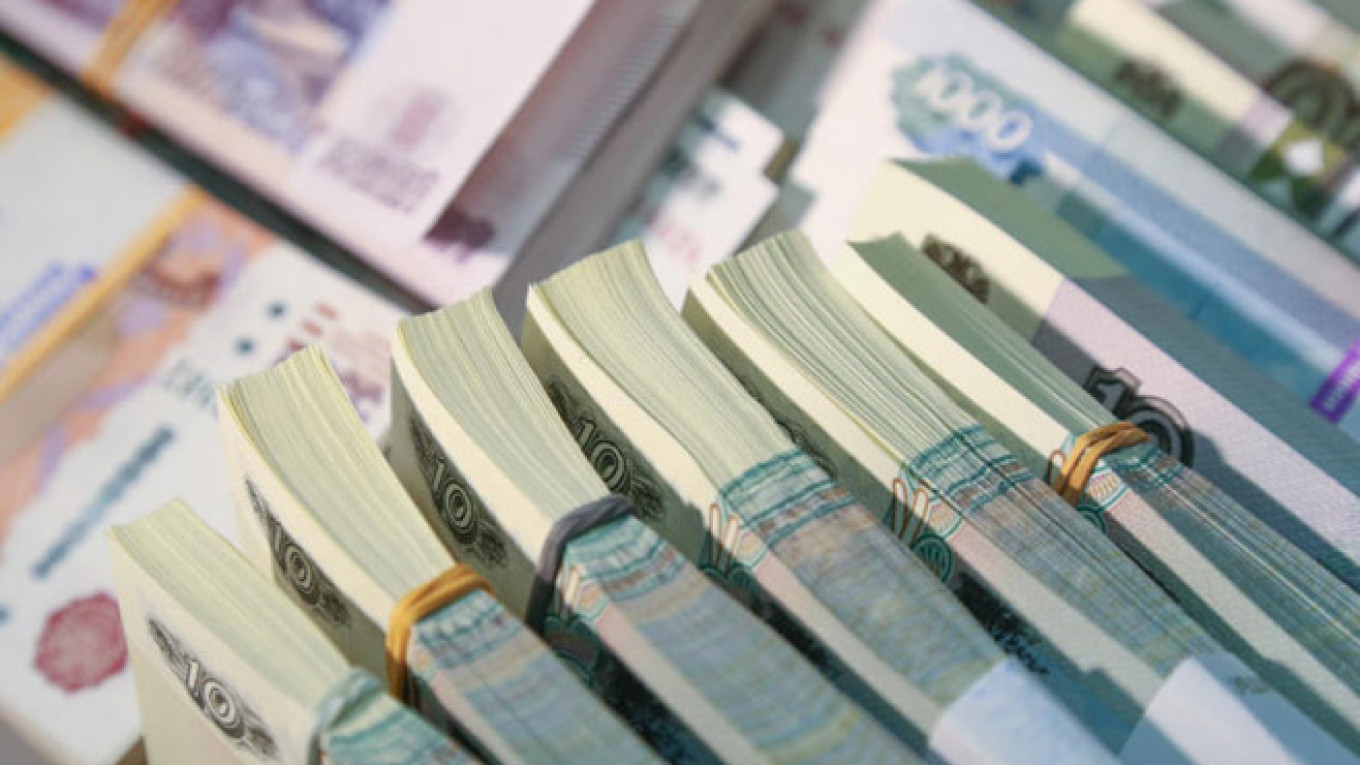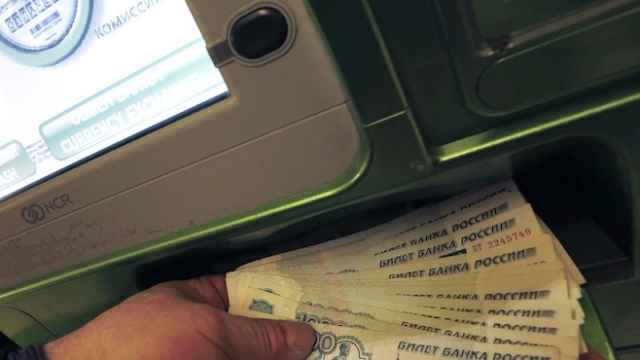Low oil prices and sanctions imposed on Moscow over Ukraine will send the Russian economy into recession next year, government officials said on Tuesday, a dramatic change to an earlier forecast of 1.2 percent gross domestic product growth.
In the first official forecast of a recession, Deputy Economic Development Minister Alexei Vedev said GDP is likely to fall by 0.8 percent next year. The ministry cut its forecast for the average oil price by $20 to $80 per barrel in 2015.
This would be Russia's first recession since 2009, in the aftermath of the 2008 global financial crisis. The economy contracted by 7.9 percent that year.
"We now assume that sanctions will remain in place throughout the whole of 2015," Vedev told reporters. Earlier, the ministry had expected sanctions to be lifted by mid-2015. "This for us means closed capital markets for the majority of Russian companies and banks."
The finance ministry said later that its GDP contraction forecast with oil at $80 is in line with the Economic Development Ministry's.
Even when sanctions are lifted, "that would not mean that the next day life changes dramatically," Maxim Oreshkin, head of the finance ministry's long-term strategic planning department, told journalists. "In any case, it would take a year or two to gradually return to a normal situation."
He added that $60-per-barrel oil would be "pessimistic" and at that price Russia's economy would contract in line with one of the Central Bank's scenarios, published last month, by 3.5-4.0 percent.
The lower oil price will also weaken the ruble, but the two ministries differ on how much. The Economic Development Ministry projects an average rate of 49 rubles per dollar — some 12 rubles more than its earlier estimates. The finance ministry sees it at below 45.
On Tuesday, the ruble weakened to around 54 to the dollar.
The main reasons for the lower forecasts are falling oil prices, the Economic Development Ministry's Vedev. Oil and gas are Russia's main exports and a vital source of income.
"The fall in oil prices has caused a significant weakening of the ruble's exchange rate, which gives rather strong inflationary effect," Vedev said.
The Economic Development Ministry sees end-2015 inflation at 7.5 percent, against an earlier forecast of 5 to 6 percent. The finance ministry said inflation could be "slightly" below 7 percent.
Capital flight is still likely to plague Russia. The Economic Development Ministry raised its forecast for 2014 net capital outflow to $125 billion from $100 billion and to $90 billion in 2015 from $50 billion.
A Message from The Moscow Times:
Dear readers,
We are facing unprecedented challenges. Russia's Prosecutor General's Office has designated The Moscow Times as an "undesirable" organization, criminalizing our work and putting our staff at risk of prosecution. This follows our earlier unjust labeling as a "foreign agent."
These actions are direct attempts to silence independent journalism in Russia. The authorities claim our work "discredits the decisions of the Russian leadership." We see things differently: we strive to provide accurate, unbiased reporting on Russia.
We, the journalists of The Moscow Times, refuse to be silenced. But to continue our work, we need your help.
Your support, no matter how small, makes a world of difference. If you can, please support us monthly starting from just $2. It's quick to set up, and every contribution makes a significant impact.
By supporting The Moscow Times, you're defending open, independent journalism in the face of repression. Thank you for standing with us.
Remind me later.






